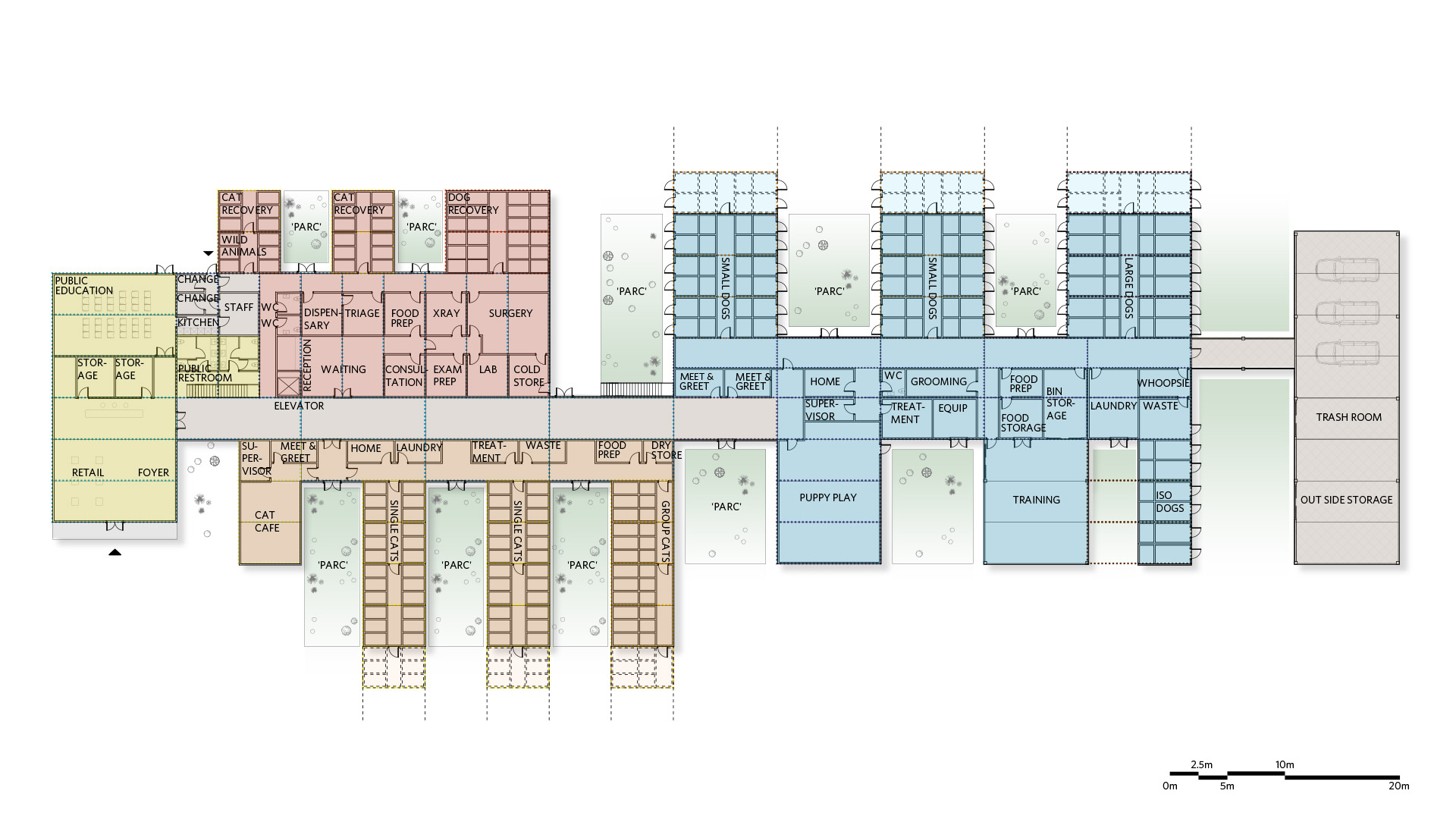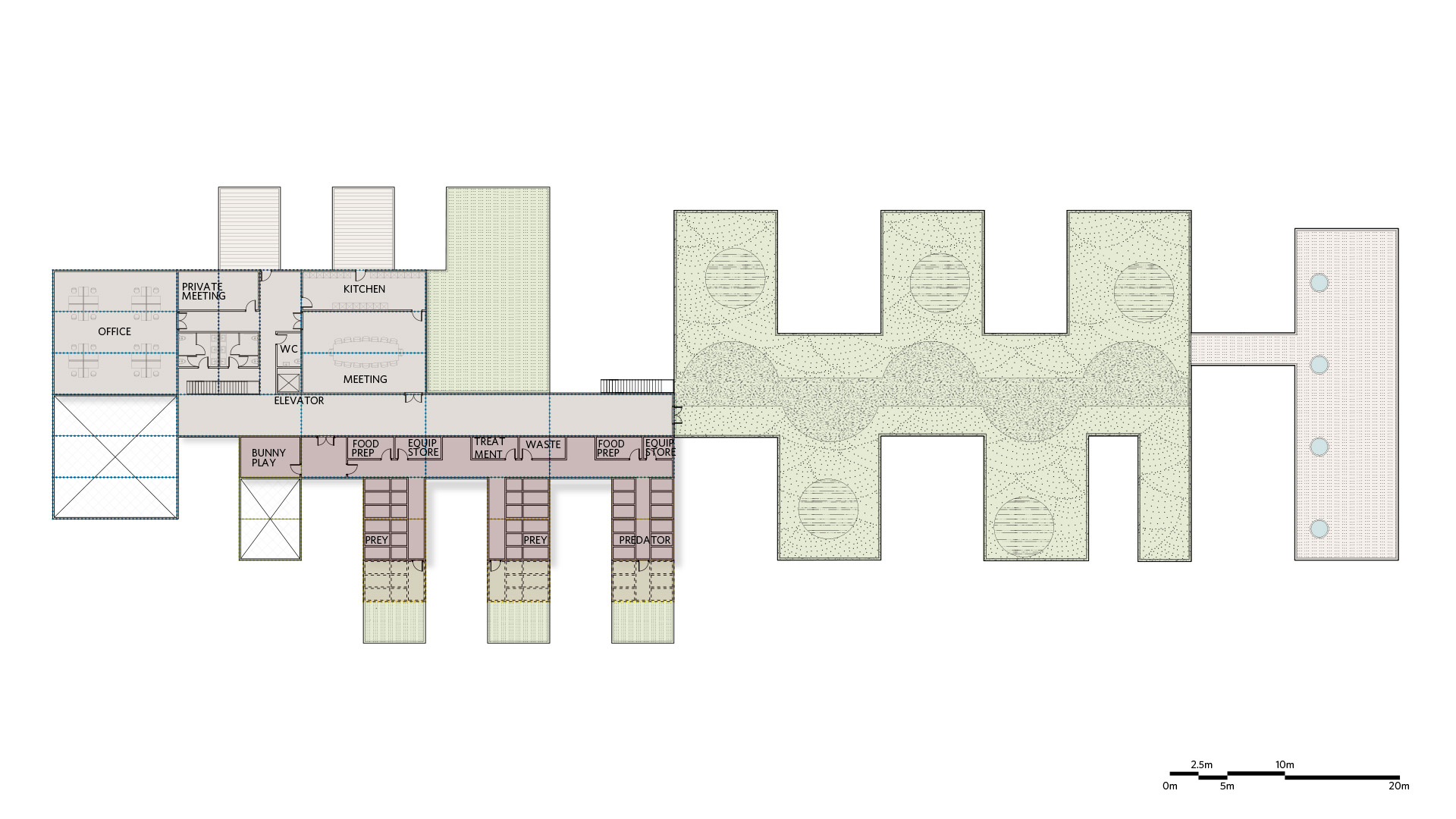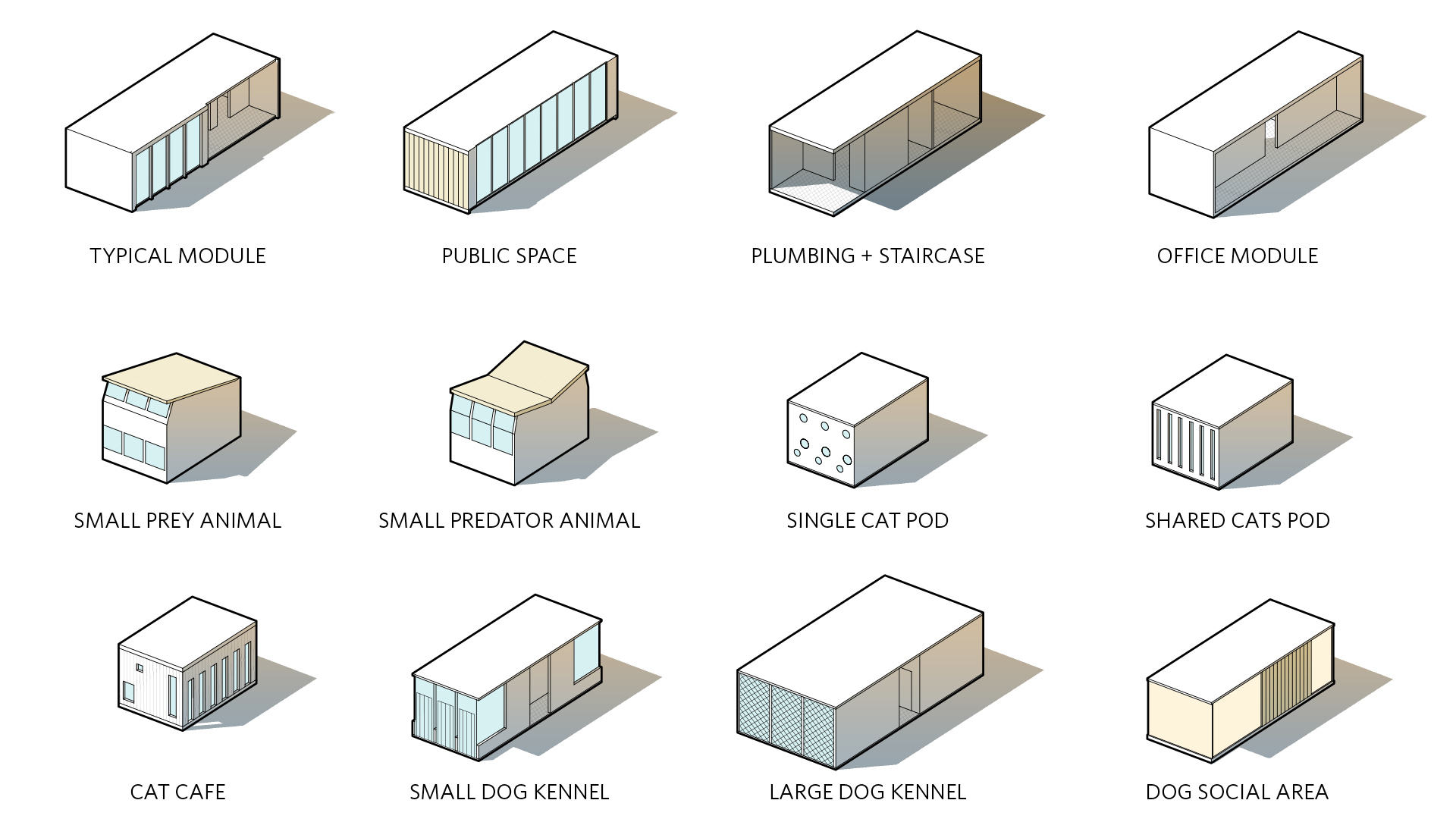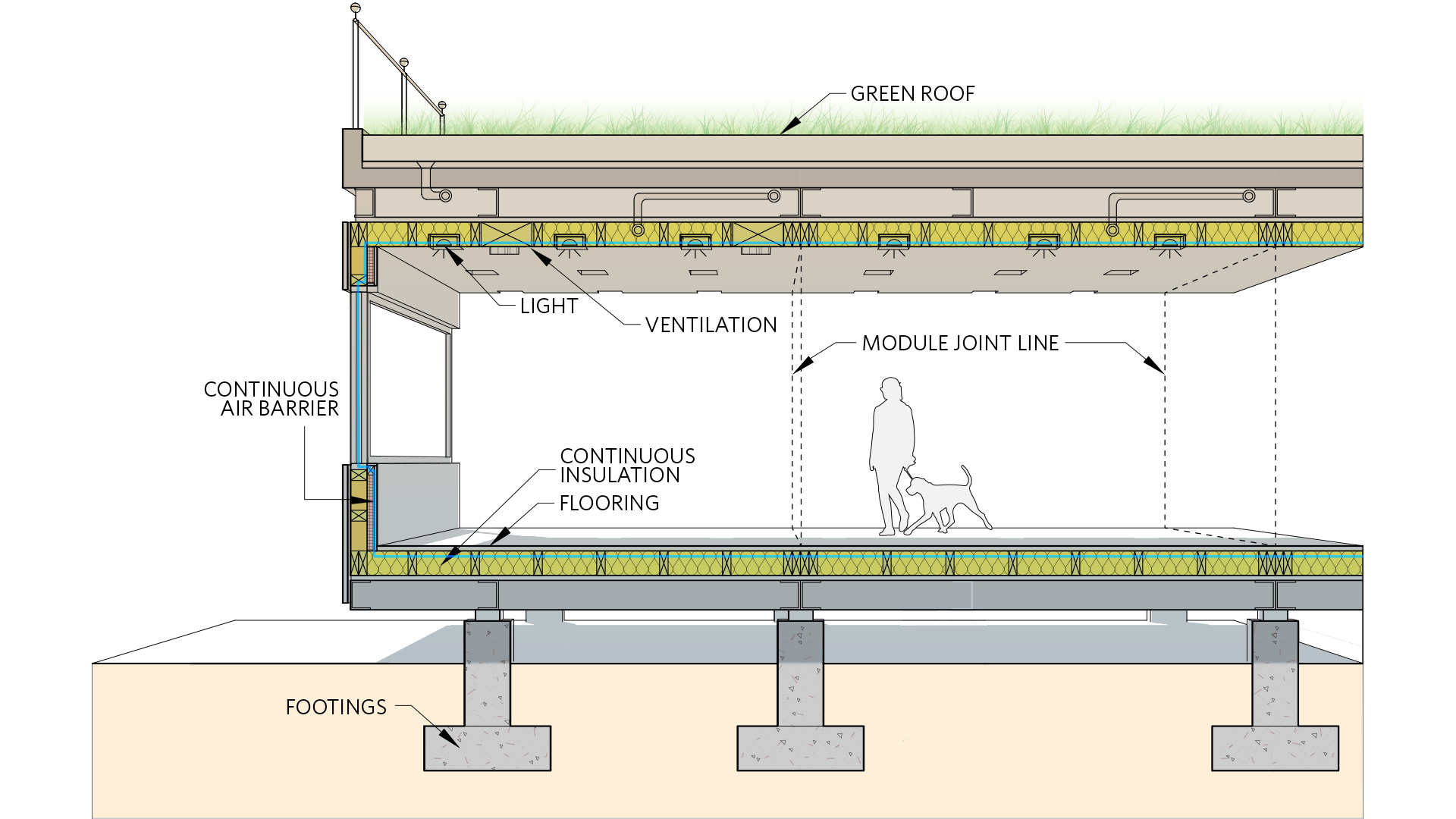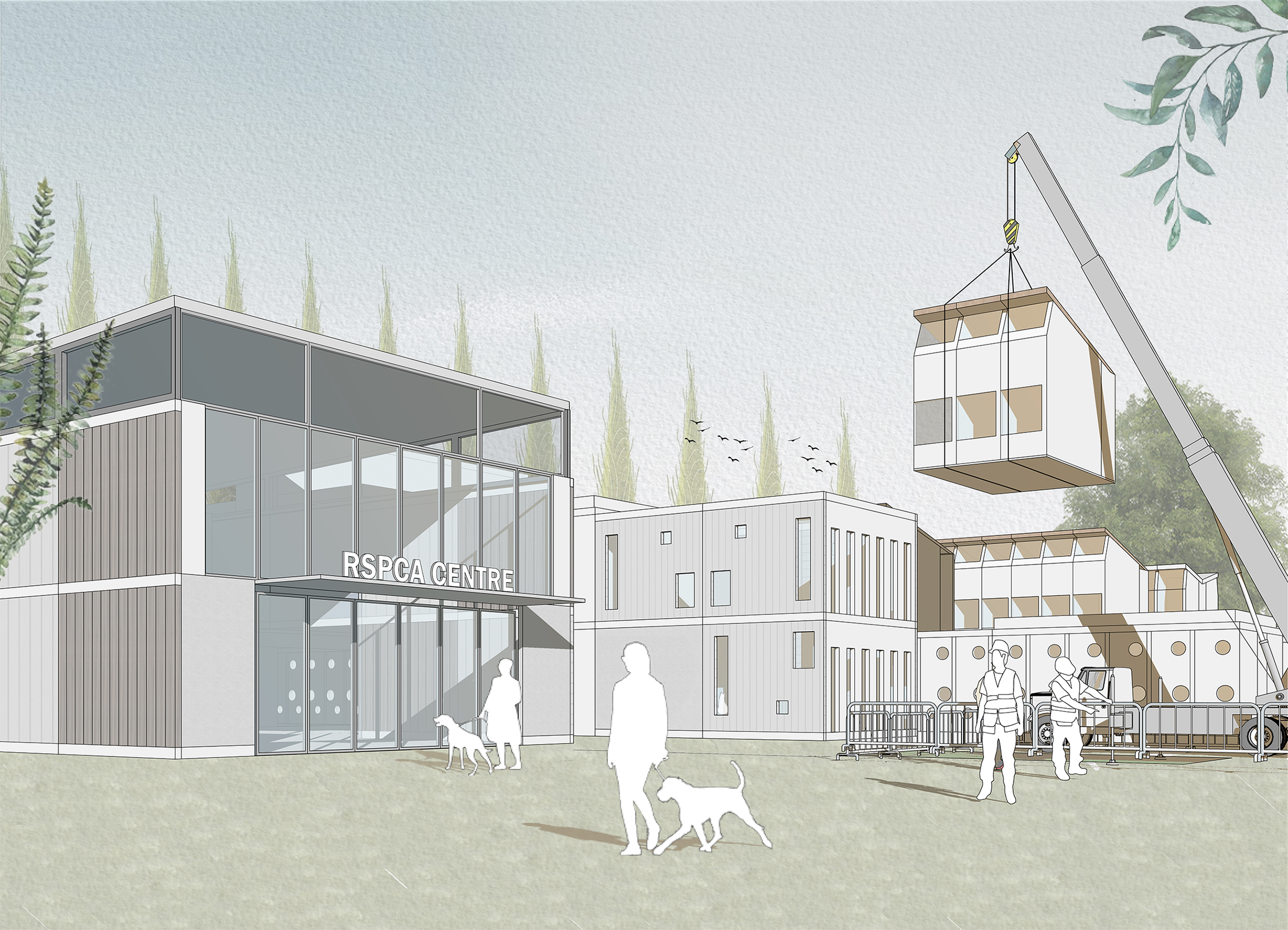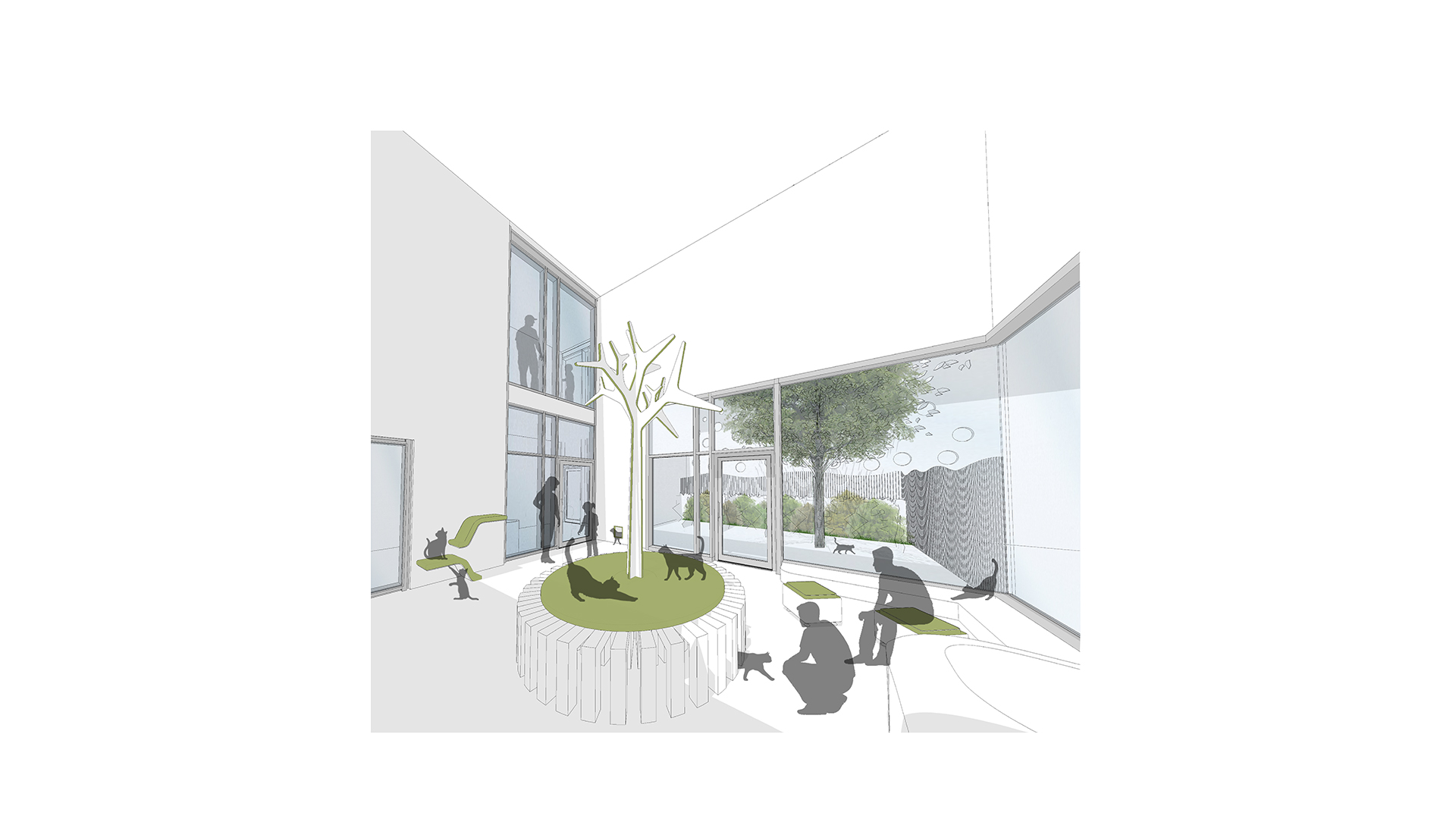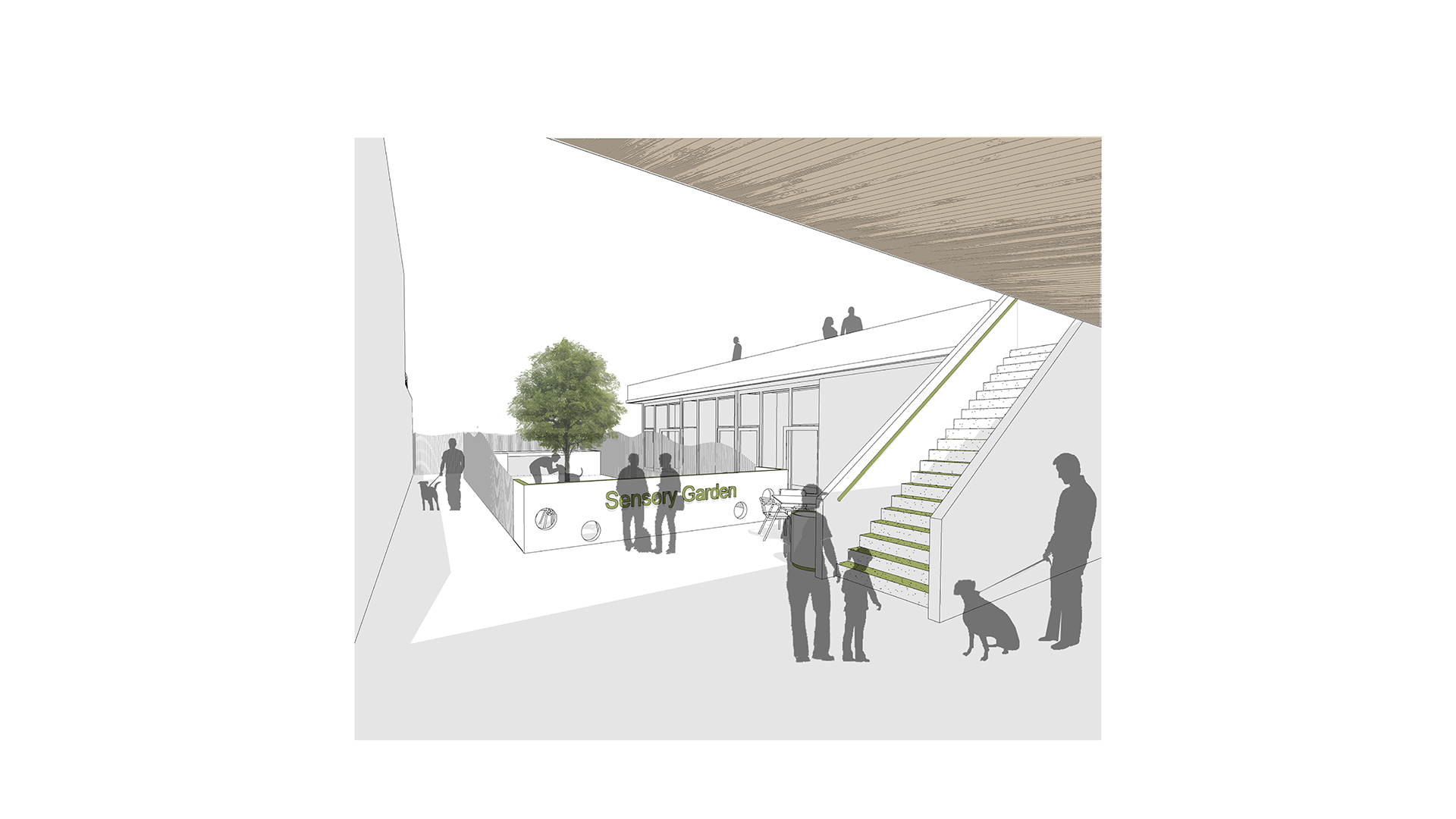RSPCA Animal Centre of the Future
Kirkby, UK • 2018
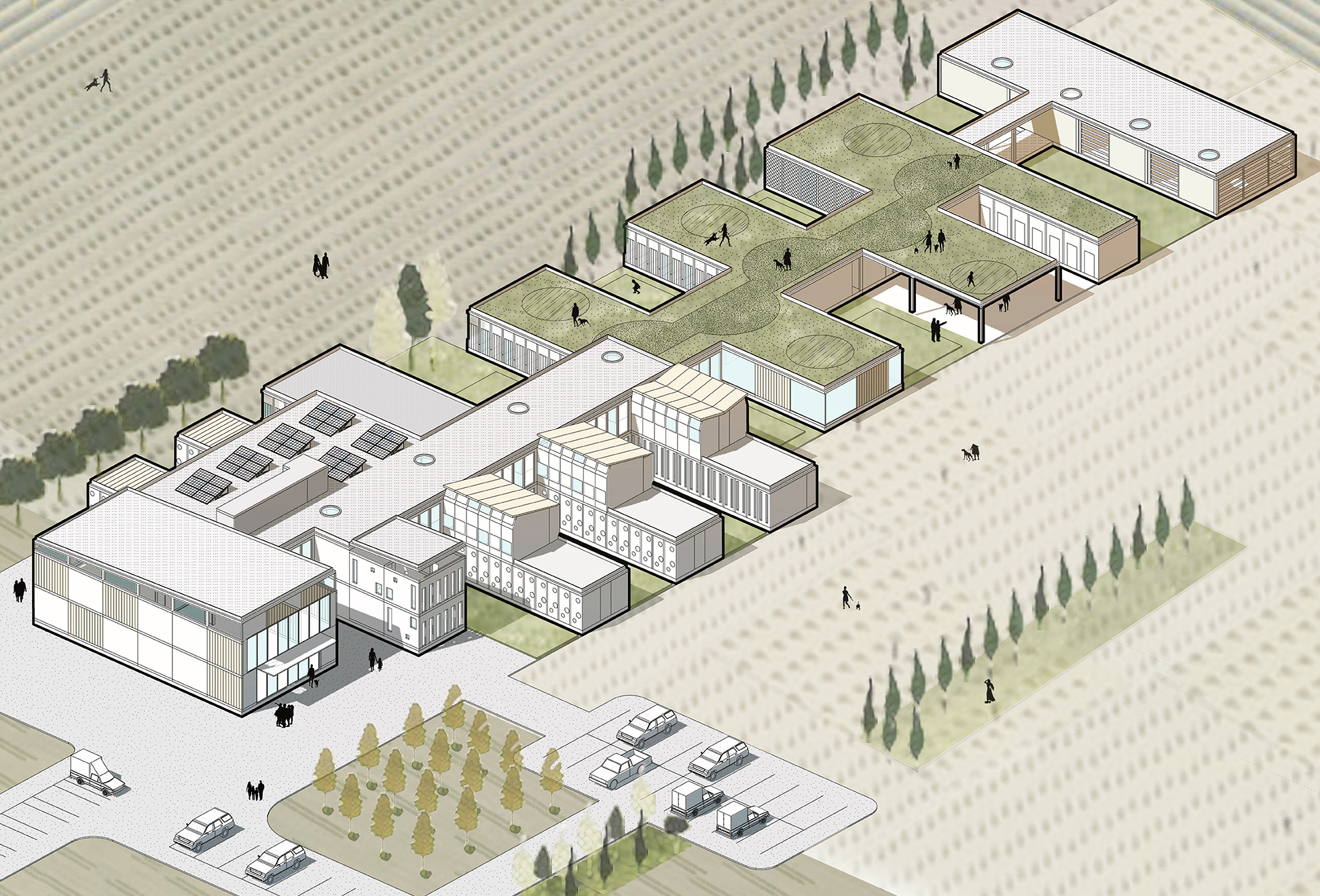
A Modular Passive House Design for the RSPCA's Animal Centres of the Future
The Royal Society for the Prevention of Cruelty to Animals (RSPCA) competition sought designs for a new animal centre which will be located in the North West of England. The prototype RSPCA facility has been developed as a complete holistic system, combining modular off-site construction with Passive House energy efficiency to maximize site flexibility, speed of construction and operational sustainability.
With bright and welcoming facades, numerous opportunities for public engagement, and light touch environmental impact, the buildings become a branded showpiece for the RSPCA’s mission and commitment to animal welfare, environmental sustainability and the community at large. The configuration of the animal accommodation areas is at the core of the design.
By developing species-specific clustered units that prioritize access to natural light, fresh air and connections to the environment the buildings promote animal welfare as their primary goal. Future expansion to add capacity is as simple as ordering and installing additional pre-fabricated modular units. Modular construction leverages the efficiency off-site fabrication of repetitive, tightly engineered building block units. By performing the majority of the construction in a controlled factory environment, the build quality is dramatically better, with substantially less waste and lower costs. Plumbing, electric and ventilation infrastructure arrive pre-installed within the individual units.
Careful detailing, sophisticated engineering and precision factory fabrication will allow the buildings to achieve “Passive House” standards for efficiency, cutting overall energy usage by up to 75%. The result will be a dramatic reduction in energy costs for heating and cooling, as well as a healthy, comfortable and quiet environment for both the staff and animals. This project has been shortlisted by RIBA and the RSPCA for execution once a suitable site has been secured.
DESIGN TEAM
Jordan Parnass
Marijke Huelsman
Cherrie Hu
CONSULTANTS
Collaboration with Fresh Design International (UK) and Gabbitas Gill Partnership.
